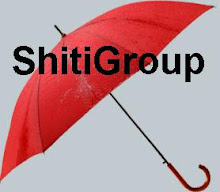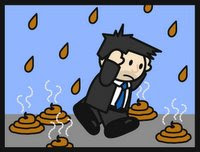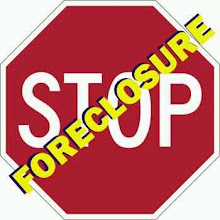On May 20, 2009, President Obama signed into law the Helping Families Save Their Homes Act. This act modifies the HOPE for Homeowners Program with the goal of helping additional families avoid mortgage foreclosure. It is anticipated that guidance related to these changes will be released within 30 days. The statutory changes to the program include:
• Additional compensation for primary and subordinate lien holders.
• Establishing incentive payments to servicers of loans refinanced under the HOPE for Homeowners Program, as well as originators of new HOPE for Homeowners mortgages.
• Reducing costs of the program to the consumer.
To learn more about the changes to the HOPE for Homeowners program and other important provisions contained in the Helping Families Save Their Homes Act, click here.
The HOPE for Homeowners Program is an integral component of Making Home Affordable. For more information on the Making Home Affordable program, visit http://makinghomeaffordable.gov/.
If you are at risk of foreclosure do not wait for assistance. You should contact your mortgage lender immediately or call 1-888-995-HOPE (4673) to reach a HUD-approved housing counselor. HUD-approved housing counselors can help you evaluate your income and expenses and understand your options - and - this counseling is FREE.
-------------------------------
Helping Families Save their Homes Act 2009
Summary of S. 896 Provisions
HOPE for Homeowners: The bill amends the HOPE for Homeowners Program, to (a) permit reduction of excessive fee levels, (b) provide greater incentives for mortgage servicers to engage in modifications under the Program, and (c) reduce administrative burdens to loan underwriters by making the requirements more consistent with standard FHA practices. Specifically, the bill would:
Put the HUD Secretary in charge of running the program, relegating the Program Board’s role to an advisory capacity
Change the upfront fee from 3% to "up to 3%."
Change the annual fee from 1.5% to "up to 1.5%."
Require the HUD Secretary to weigh both the financial integrity of the program and the bill’s purposes of foreclosure prevention in setting premiums.
Change the provision for HUD to receive 50% of appreciation profit sharing to authorize "up to 50%" of such profit sharing; allow HUD to share this with the existing first or subordinate lienholders to induce loan writedowns; provide flexibility to assign any profit sharing rights HUD elects to share; cap profit sharing at up to the appraised value of the property when the existing loan was made.
Permit payments to servicers of existing mortgage loans on the property and to underwriters of the new FHA loan for each successful refinance.
Include a number of administrative changes, including:
o requiring conformity to FHA single family procedures and standards as much as possible;
o modifying current debt income affordability test to apply it at the time of the new loan application, instead of March 1st of 2008;
o modifying certification of no intentional default on other debts so that it now applies "to any other substantial debt" within the last five years; and eliminating reference to going to jail because of false statements;
o providing for slightly less prescriptive language regarding collection of income tax returns;
o eliminating extraneous LTV restrictions on use of second lien loans to maintain property; and
o barring borrowers with a net worth of more than $1 million.
Re-instate authority of HUD, with the concurrence of the Board, to conduct an auction to refinance loans on a wholesale or bulk basis.
Offset the costs of program changes with a reduction in TARP authority of $1.244 billion.
Servicer Safe Harbor: The bill provides a safe harbor from liability to mortgage servicers issuers, trustees, loan sellers, depositors, and any other person" to the extent the person’s cooperation is required to allow the servicer to engage in loan modifications, as long as the servicer provides a modification consistent with the Administration’s program or it utilizes Hope for Homeowners.
Deposit Insurance: The bill amends the Federal Deposit Insurance Act and the Federal Credit Union Act to enhance the liquidity and stability of insured depository institutions to ensure availability of credit and reduction of foreclosures. Specifically, the bill would:
Extends through 2013 the temporary increase in deposit insurance coverage for both the FDIC Deposit Insurance Fund and the National Credit Union Administration (NCUA) Share Insurance Fund to $250,000 (the temporary increase is currently scheduled to sunset on December 31, 2009).
Provides FDIC an increase in borrowing authority to $100 billion, while providing a temporary increase until the end of 2010 to $300 billion. Specifically restricts FDIC from using the $300 billion for funding losses under programs established with Treasury under TARP.
Provides NCUA an increase in borrowing authority to $6 billion, with a temporary increase to $30 billion.
o Any amounts borrowed must be used only for insurance purposes.
o Neither the FDIC nor the NCUA has ever used this borrowing authority.
o The FDIC borrowing authority amount has not changed since 1991, even though the size of the industry has tripled. The NCUA borrowing authority has not changed since 1972 when it was established, even though the size of the industry has increased from $13.8 billion in 1972 to $813 billion at year-end 2008.
o Any money borrowed must be repaid, with interest, pursuant to a repayment schedule that must be in effect prior to receiving any money, and which is subject to a requirement to consult with and report to Congress.
Allow the FDIC to charge systemic risk special assessments by rulemaking, on both insured depository institutions and depository institution holding companies. For holding company assessments, the concurrence of the Secretary of the Treasury would be required.
FHA Approval: Contains numerous provisions to better ensure that predatory lending entities and individuals are not allowed to participate in the FHA home mortgage insurance program. Specifically, the bill would:
Require HUD approval of all parties participating in the FHA single family mortgage origination process.
Allow HUD to impose a civil money penalty against loan originators who are not HUD-approved and yet participate in FHA mortgage originations.
Make clear that an applicant is ineligible for approval if the entity or any officer, partner, director, principal, or employee of the entity is: a) suspended or debarred by any Federal agency; b) under indictment for, or has been convicted of, an offense that reflects adversely upon the applicant’s integrity, competence or fitness to meet the responsibilities of an approved mortgagee; c) subject to unresolved findings contained in a HUD or other governmental audit, investigation, or review; d) engaged in business practices that do not conform to generally accepted practices of prudent mortgagees; e) convicted of a felony related to participation in the real estate or mortgage loan industry; or f) in violation of provisions of the S.A.F.E. Mortgage Licensing Act.
Require that HUD receives notice of the debarment and any change in licensing status of a FHA approved mortgagee.
Require HUD to expand the existing FHA process of reviewing new applicants for FHA approval for the purpose of identifying those representing a high risk to the Mutual Mortgage Insurance Fund and implement procedures that expand the number of loans reviewed by FHA for lenders approved within the last 12 months, and include a process for random reviews that is based on loan volume by newly approved participants.
Require FHA approved mortgagees to use their HUD registered company names in all advertizing and to keep copies of all advertisements.
FHA and RHS Foreclosure Prevention
Expands the authority of the Federal Housing Administration (FHA) and the Rural Housing Service (RHS) to engage in foreclosure prevention in their respective single family loan programs, by allowing for both FHA and RHS the following new tools:
Partial Claims. Permits partial claims of up to 30%, which will allow reductions in debt service down to levels affordable to the homeowner
Standard for loss mitigation. Permits loss mitigation tools to kick in for loans that face "imminent default" (ie., not just loans in default)
Assignment Authority. Gives both FHA and RHS authority to facilitate loan modifications through assignment of loans, to address servicer loss mitigation disincentives relating to having to purchase loans from Ginnie Mae pools
McKinney-Vento Homeless Reauthorization
1st major program reauthorization in 20 years
Authorizes $2.2 billion for the program in FY 2010 and such sums in FY 2011
Expands the federal definition of "homeless" by counting families who will lose their housing in 14 days (current practice is 7), by adding families with children and unaccompanied youth who have experienced a long term period without living independently and can be expected to do so for an extended period, and adding those fleeing domestic violence or dangerous or life threatening situations
Expands flexibility to use funds to assist families with children not technically defined as homeless - by permitting local continuums to use up to 10% of their funds for such families, by expanding the proportion of funds going to homeless prevention activities (which can serve such families), and by allowing rural areas much more flexibility to serve such families
Streamlines McKinney-Vento homeless programs by consolidating the competitive grant program and by using a simplified match requirement
Additional Funding for HUD programs - HUD Authorizations not in House bill: (a) $10 million each of the next 2 years for advertising to increase public awareness or mortgage scams and counseling assistance, (b) $50 million each of the next 2 years for housing counseling in areas with highest foreclosure rates, (c) $5 million in each of the next 2 years for Fair Housing activities in areas with the highest foreclosure rates.
Tenants Protections: The bill allows bona fide tenants to remain in their residence, pursuant to their lease, following a foreclosure, except when the successor in interest or subsequent purchaser will occupy the unit as a primary residence - in that case the tenant must receive notice to vacate at least 90 days before the effective date of such notice. A lease or tenancy is bona fide if it is the result of arms-length transaction and if the rent is not substantially less than fair market rent.
Public-Private Investment Partnerships - Requires that any program to create a private-public investment fund must have conflict of interest rules, and requires funds to report on 10 largest positions in the fund and investors with greater than 10 percent interest in fund, to retain records by fund, to acknowledge fiduciary duty, and to develop ethics rules and screening. Allows the Special Inspector General access to books and records of a fund. Requires Treasury to consult with Special Inspector General on the interaction between the Private-Public Investor Program, the Term-asset Backed Securities Loan Facility, and similar programs and to issue conflicts of interest rules, including concerning the potential for excessive leverage as a result of interactions of program. Also makes additional funds of $15 million available to the Special Inspector General.
The House Manager’s Amendment includes the following key clarifications:
Neighborhood Stabilization Program (NSP) Refinements - Clarifies that states receiving the minimum allocation of NSP funding, that have otherwise fulfilled the targeting requirements of the program, may distribute any remaining funding to areas with homeowners at risk of foreclosure or in foreclosure. Maintains the statutory purpose of the NSP program, which is the rehabilitation and resale of abandoned and foreclosed properties. And eliminates the requirement that NSP properties be purchased at a discount from the current market appraised value.
Private-Public Investment Partnerships - The language makes clear that Treasury shall write the conflict of interest rules required by the provision. Clarifies that managers are to provide the Secretary information on any investor that holds an equity interest in a fund of at least 10 percent. Clarifies that Special Inspector General shall prioritize audits or inspections of any program funded in whole or part by the Emergency Economic Stabilization Act of 2008.
Servicer Safe Harbor - inserts language to exclude actual fraud from the loan modifications and transactions protected by the amendment.
http://portal.hud.gov/portal/page?_pageid=73,7601299&_dad=portal&_schema=PORTAL
Tuesday, June 9, 2009
Subscribe to:
Post Comments (Atom)












No comments:
Post a Comment